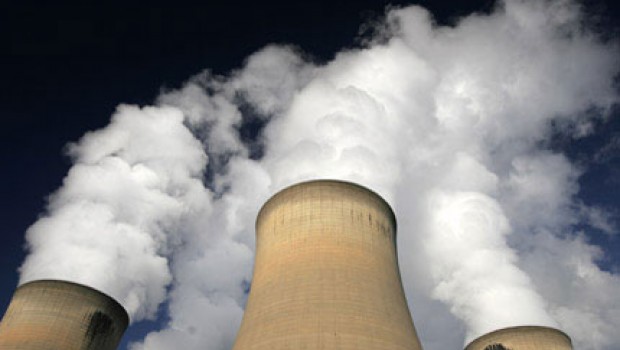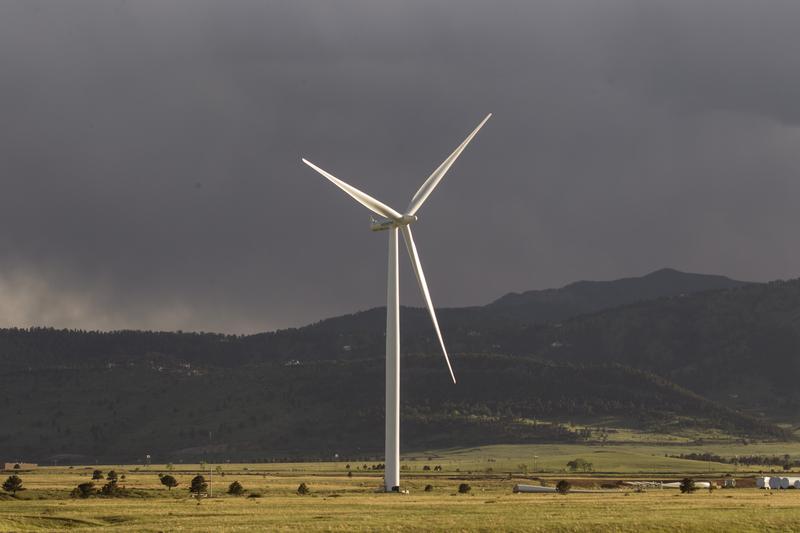Comment: It’s time to cut the real green crap

The Prime Minister is said to have ordered his Ministers to “cut the green crap” from energy bills. Yet his government’s policies for tackling climate change are far more expensive than they need to be.
In 2012 The Spectator exposed a loophole in the coalition’s flagship wind farm scheme, which sees some large wind turbines have their output capped in order to benefit from more generous subsidies.
A new IPPR report exposes how this loophole could end up costing British energy billpayers more than £400m in ‘excess subsidies.’
Read more: Wind energy subsidy exploited to the tune of £175m, says IPPR
Despite having the loophole repeatedly drawn to their attention over the past two years, Ministers failed to shut it down.
As the UK’s ageing power stations reach the end of their lifespans, it is right that we use cleaner and more modern technologies to replace them. This should include a big expansion of wind energy.
Imposing an artificial limit on the growth of onshore wind would certainly have the effect of putting up household bills since onshore wind is the cheapest source of clean energy available to the UK and so it would make us more reliant upon other, more expensive technologies.
Nevertheless, this wind energy loophole is just the latest example of how badly designed energy policies are unnecessarily short-changing families and businesses, and undermining public confidence in the national effort to cut carbon pollution and grow Britain’s valuable clean energy sector.

Capacity payments keeping coal on the grid
Take George Osborne’s carbon tax. Introduced in his budget in 2011, it sees the government unilaterally impose a gradually rising tax on Britain’s polluting industries, which is then passed through to consumers to pay.
Although the tax is currently frozen, according to the government’s own advisers the measure is expected to become one of the primary causes of rising energy bills in coming years.
The stated intention of the measure is to make clean energy look like an increasingly attractive option by making dirty energy (like power generated from coal-burning) more expensive.
Yet the operators of the same coal plant that this tax is penalising are benefiting from hand outs called ‘capacity payments’ – also paid for by bill payers – that are intended to subsidise existing fossil fuel power stations to encourage them to stay on the system for longer.
As the Chief Executive of Centrica has highlighted, it means we’re perversely paying to get coal plant off the system whilst simultaneously paying to keep them on.
Forthcoming IPPR research will detail how a more targeted approach to reduce pollution from our existing coal plant would enable lower fuel bills but also help us to achieve the goal of a cleaned up power system.
Enormous Hinkley subsidies
Irrespective of your views on nuclear power, the financial arrangements the government have put in place to try and get a new plant built at Hinkley Point are another example of billpayers forking out over the odds for less polluting energy.
The government has offered the French state backed utility, EDF, a fixed subsidy at twice the current market rate of power for the next thirty-five years. This is likely to total more than £17bn in hand outs for just one power station.
You don’t have to be sceptical about nuclear power to think that is an awfully large amount of subsidy to transfer from billpayers to a state-backed energy giant for just a single power plant.
The Financial Times energy expert Nick Butler is one of those who has pointed out that the government has not exhausted avenues to bring down the costs of the project.
He recently wrote, “Government-backed funding would be materially cheaper than going to outside investors who would inevitably require a risk premium, or even more expensive financial guarantees.
The UK government can borrow more cheaply than almost anyone in the world. A different approach to funding would allow the terms of the deal to be renegotiated and made less generous.”

Efficiency the priority
It has often been noted that the cheapest energy is the energy that we don’t need to generate, which is why reducing energy demand through home insulation and other measures is so important and why it should be a top infrastructure priority.
Yet the government’s flagship efficiency scheme, ECO, funded from fuel bills, was so badly designed that 80% of the funds spent every year (£433 million of £540 million) go to households that are not fuel poor.
Polling consistently shows wind farms and the low-carbon transition remain popular with most of the public and rightly so because tackling the risks to our homes and livelihoods from climate change is crucial. The risk is that public confidence in these efforts will be undermined if policy keeps loading the costs on to families for “green crap”.
Joss Garman is Senior Research Fellow at IPPR

